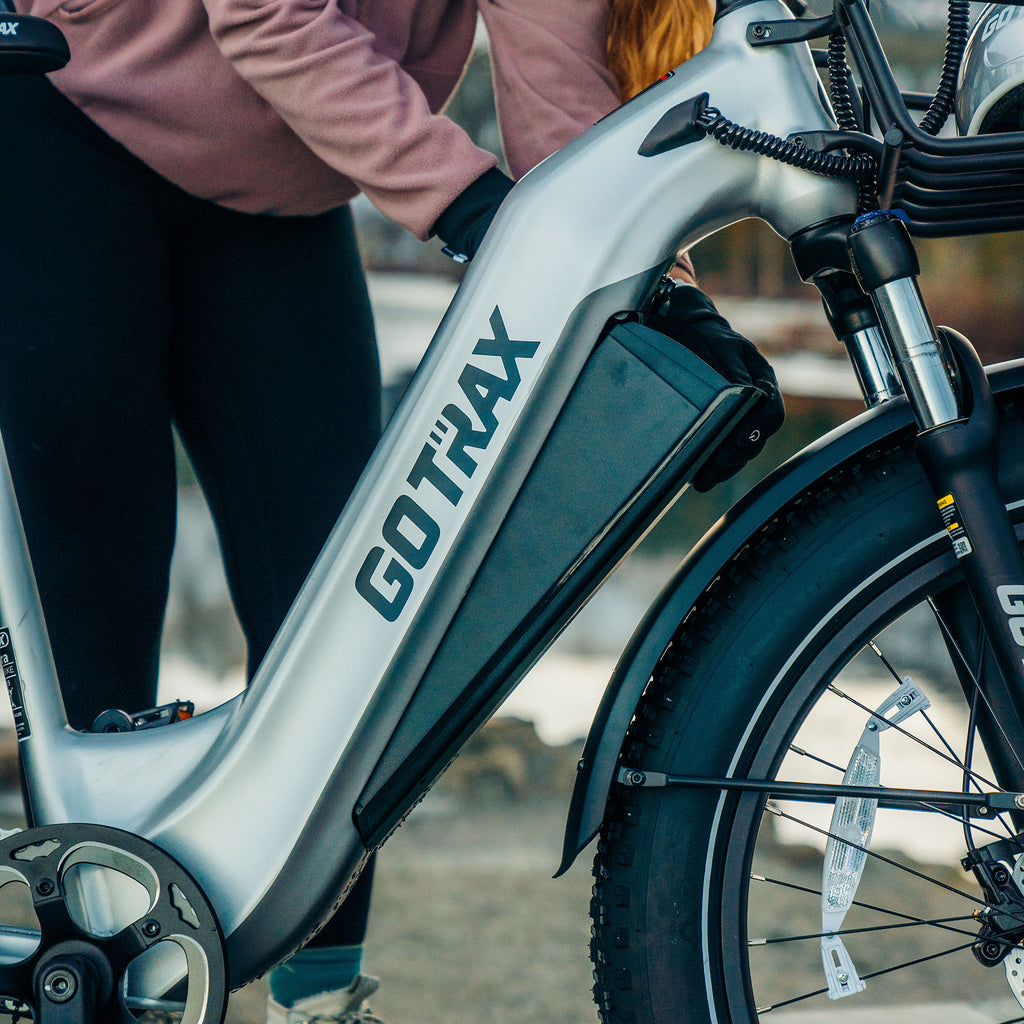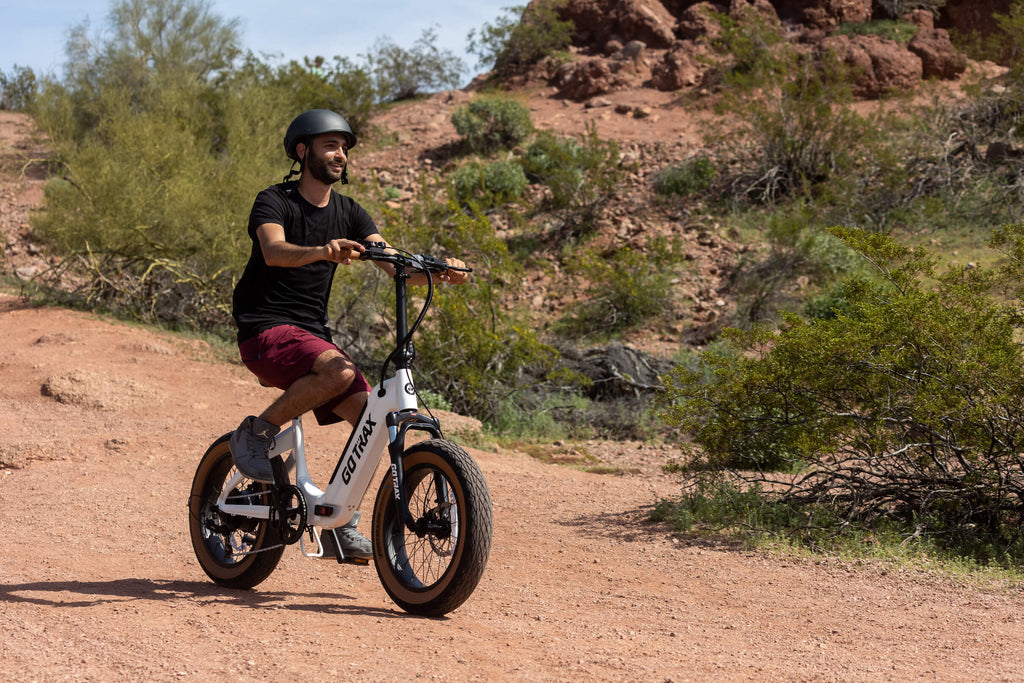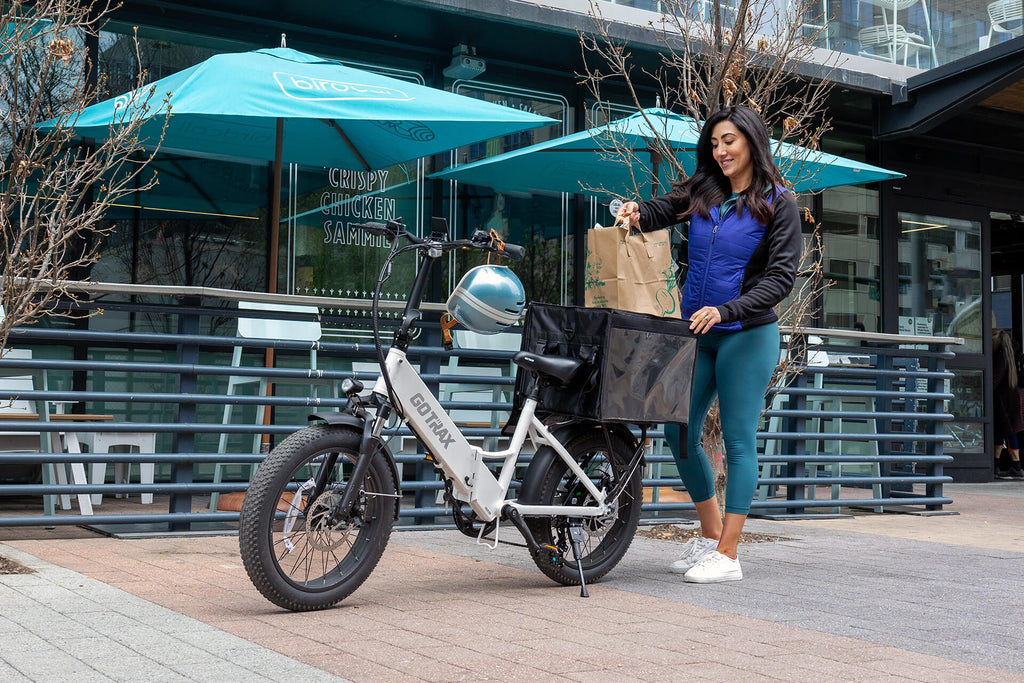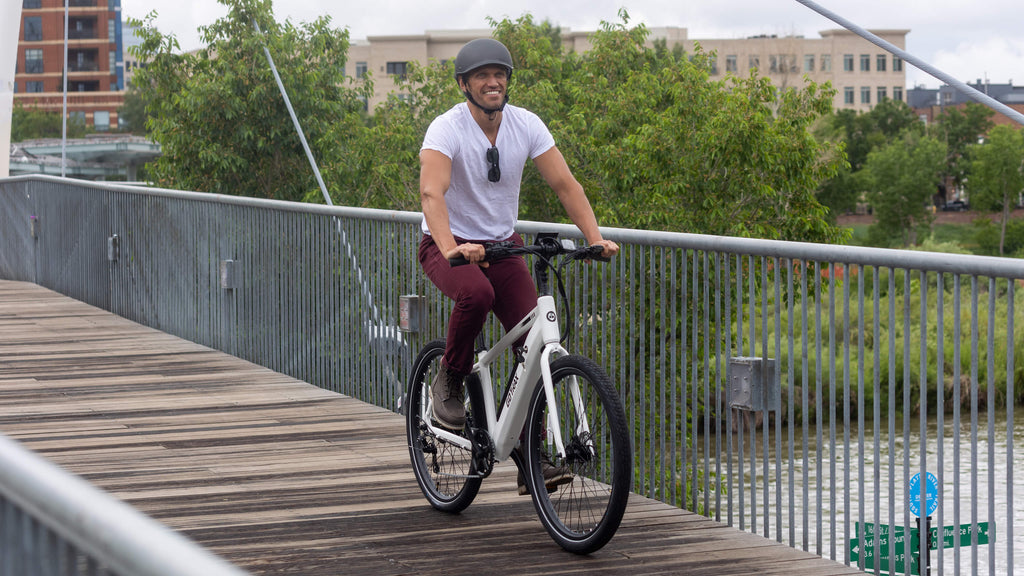Riding an electric bike is always a great way to travel shorter distances and get yourself outside. But an e-bike can only go so far before it needs to stop and recharge for the next trip. Each electric bike has a varying range it can take you before it runs out of power, and that range is influenced by a handful of key factors while riding. Today, we’re going to go over the biggest conditions that influence the distance you can travel on your e-bike, helping you extend your trips when you need to.
Electronics Matter

No matter what, your e-bike’s range is going to be limited by the capacity of its main power source, its battery. If you want an e-bike that can go farther, you’re going to need a bike with a higher-capacity battery. This capacity is measured in Ampere-Hours, or Ah. A bike with a higher Ah battery but otherwise identical specs to another bike will have a higher range.
The battery won’t maintain the same capacity forever, either. Over time, batteries inevitably begin to perform worse. Remember to practice proper battery care to extend your battery’s lifespan for as long as possible. If you need to replace your e-bike's battery, make sure you only use the battery that specifically matches your e-bike: we offer replacement batteries on our parts page. If you don't use the matching battery, you run the risk of damaging your e-bike. Make sure to practice proper disposal measures for old lithium-ion batteries, too. Improper disposal can lead to fires or pollution, so make sure you do your research on the appropriate steps for lithium-ion battery disposal in your area.
Pedal Assist is Powerful—and Power Hungry

The main draw of an e-bike is pedal assist, the ability to have the bike’s motor back up your pedaling efforts, thereby letting you save your own energy. Some bikes even use throttle, which lets you skip pedaling entirely. But while you may not need to use your legs to move your bike, e-bikes don’t travel on their own. The power for pedal assist and throttle has to come from somewhere, and that place is the battery. Higher levels of pedal assist or pure-electric throttle will draw heavily on the battery, causing it to drain much faster than it would if you were using a lower level of assistance. If you want to preserve your battery and extend the range of your trips, try to keep to lower levels of assistance on flatter and smoother ground.
It Takes Effort to Carry Cargo

The weight that the bike is carrying matters, too. The more you load onto your bike, the more energy it’s going to need to haul that stuff at a certain speed. Think about it: it’s a lot more tiring to carry a small bag of books than it is to carry a small bag of feathers. The same applies for an e-bike. If you’ve got a heavy backpack or are loading bags onto your bike’s front or rear rack, it’s going to drain the battery faster. If you find your bike running out of steam before you reach your destination, consider if any of your cargo can be left behind.
Conditions Are Never 100% Ideal

In a perfect world, we would be riding with a tailwind supporting us at all times across the smoothest road ever built with no friction or resistance. Unfortunately, the weather is not always kind to riders, and city roads are not always well-maintained—if you choose to ride on the road at all. Rougher riding conditions will require more effort from the bike to maintain your desired speed, thereby draining the battery faster. If you’re riding on uneven dirt roads, up steep inclines, or against the wind, expect to charge your bike sooner than you would have otherwise.
While these aren’t the only factors influencing your riding range, paying attention to these conditions can help you ride for longer. Of course, no matter how far you ride, safety is the most important thing. Remember to follow local laws as you travel and, no matter what, always wear a helmet!






